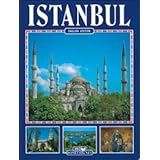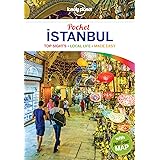Sun Tzu’s Art of War is the number one reference source for business strategies, and strategy is actually a military term. The views of the general and strategist Sun Tzu, who was the gift of ancient China to world history, inspired the millennia that followed. The first known strategist of history has shown different cultures a path to strategy with his approach to the enemy and his philosophy of war in today’s global competition. He interpreted war as an art and formed the basis of modern management sciences in the fields of resource, time management and administration. The philosophical infrastructure he established on how to win the war, how to resolve problems and disagreements, has turned into a treasure trove of knowledge benefited by large organizations, the armies of today.
The business world continues to import military terms into the discipline. The internet concept developed as a result of the latest military applications has been added to concepts such as strategy, tactics and logistics. Both the world, both in Turkey’s history of technological, scientific, management philosophies have been developed as military-oriented availability.
Mankind laid the foundations of today’s organization by coming together to hunt for the first time, then come together to clash with opposing groups, and in the ongoing process, they have made efforts to develop these groups in a managerial and scientific manner to fight more effectively. Its formation of human communities, its hierarchy within the organizational structure and the competition it enters with similar formations for its existence are identified with its armies with today’s companies and with the fierce rivalries of these companies in order to increase their sphere of influence.
The increasing importance of the People’s Republic of China is an indisputable fact in these days when the order of the world political economy is changing. In this period when the new world order is at the stage of establishment, examining the Sun Tzu philosophy, which has started with the Turks throughout the history of China and determines its relations with “others”, will undeniably develop our organization’s reaction abilities.
Management science is not enough for today’s companies that have goals such as growing profitably, increasing market share, and getting ahead in competition. This problem brings about increases in the number of companies and managers who try to utilize other disciplines with the intention of getting better results.
The teachings of the general named Sun Tzu, who had a very important place in the history of the war, are among these sources. It is Sun Tzu who put forward the first theories in strategy science. Sun Tzu, who lived in China 2500 years ago, comes from Sun Tzu’s “The Art of War”, known as “the world’s oldest book of war strategies”. This work, which is one of the famous Chinese classics and is considered to be the basis of all modern military strategies, is in ancient China. 5-3. It is known that it was written in the “Warring States” period (the period of the Chou dynasty) that lived between centuries. In the work dominated by Taoist philosophy, war is considered as “a matter of vital importance for states, a matter of life and death, the road to life or extinction” and for this reason it is said that “it is inevitable to examine it deeply”.
The “Art of War” book has become a classic in military academies in many countries of the world. In this respect, we can compare it to the “Roman Law” course taught in every law school.
Sun Tzu rose to the rank of general with the wisdom and achievements he produced during the provincial wars. The principles of war have been accepted by everyone, and not much has been added to the ideas he found. In the war with Hannibal, the Roman commander Fabius Maximus was saved by his ideas, and Napoleon Bonaparte won the battles of Jena and Austerlitz by adopting his mind. The USA announced that it suffered much less losses in the desert storm and the Iraq wars.
Approximately M. Ö. The Art of War, written in 500 years, is the oldest work of the military in the world. Quite briefly, but succinctly and intensely, it covers only the principles and still largely retains its original value.
This book is still a valuable guide to the management of warfare (that is, even twenty-five centuries after it was written), for military researchers and students who are capable of adapting the principles it covers to the demands of contemporary warfare.
Although chariots have disappeared and weapons have changed, this ancient master retains its value only because it deals with the fundamental issues, the influence of politics, and the aspect of human nature in military action. He has remarkably demonstrated how these principles are immutable. Some of the principles of the Art of Crossword Book are as follows:
The Art of War is vital to the state.
– All war practices are based on deception and deception.
– In war, your biggest goal is victory, not long voyages.
– In the offensive, the able general is that he does not know what to defend against. He is skillful in defense that; He does not know what to attack.
– Speed is the essence of war. (Quickness is the spirit of war. Take advantage of the enemy’s unpreparedness, take unexpected routes and attack undefended points)
Today’s firms are also fighting. The difference between the war the firms are in and the real war is that firms do not have the option to stay on the sidelines and not go into war. There is a war between the chains, and since there is a symbiotic relationship between the companies in the chain, each company has to make an effort towards the success of the chain. In such a case, Sun Tzu teachings are of undeniable benefit.
ATATÜRK AND SUN TZU: Comparative Analysis of Martial Art
The first known strategist in history, Sun Tzu’s book Art of War, which has shown a strategy to different cultures with his approach to the enemy in today’s global competition and his philosophy of war, is the number one reference source for war (and competition) strategies. The actors of the war in Sun Tzu’s book “The Art of War” are the Chinese and the Turks.
Turks, on the other hand, fought ceaselessly until they came to Ataturk, but they did not write about their wars. 2500 years after Sun Tzu, Ataturk, with his applications and evaluations about the Art of War, has opened the way to provide a basis for comparing the practices of the Chinese and Turks, the oldest masters of the Art of War.
By Sun Tzu’s military doctrine, our founder, Mustafa Kemal decided that Atatürk taken on careers, interpreted the competitive outlook and war philosophy of winning victory in the War of Independence, it offers against their rivals, Turkey interpretation of Strategy holistic identity, allowing us to use the essence of our resources effectively will give us the opportunity to develop our corporate identity in line with our roots.
Mission in Atatürk; In Sun Tzu, the vision is limited to victory in a narrow sense, while Atatürk has taken the war out of the battlefields with the concept of real victory, and made the war not only concerned with the soldiers, but made the nation and the people all actors of the war. Compared to Ataturk’s vision, which surpasses the strategy, Sun Tzu does not seem to have surpassed the technical and tactical level.
The study also drew attention to the differences between Sun Tzu and Atatürk in similar aspects. The points where they merged and diverged have been scanned and interpreted based on the decisions they made in extensive sources.
Although the periodic differences of Atatürk and Sun Tzu are minimized in the text, factors that make a difference between them depending on the different conjunctures, the periods and reasons of the wars that created them, were frequently encountered during the study.
It should not be expected that the views of the army of Sun Tzu, who were commissioned by emperors or princes for booty, on the victory, and Atatürk’s army, which was created from a defeated imperial army and had the last chance to save his country.
The difference of the term victory, which is different from the two commanders, forms the center of the differences that emerge throughout the work. The choices made by the commanders between defense and attack, while the Sun Tzu does not mention the concept of pursuit, Atatürk’s strict adherence to the principle of absolute follow-up and annihilation constitute effective examples of these interpretation differences arising from the conjuncture differences of the two thinkers.
The most striking difference in the study was the difference in vision between the two commanders. While the aim of Sun Tzu is to gain superiority to the enemy in combat, Atatürk’s aim is to win the war. Enemy extermination, persistent aggression and pursuit emerged as a result of Atatürk’s broad vision.
It has also been surprising to see great identifications in the text, apart from the difference of two thousand five hundred years between them. The decisions taken by the two commanders who served history coincide with each other before, after and during the war, and it is underlined that the structure that can take aggressive and disciplined initiative will achieve victory.
Another striking feature is the importance that both commanders attach to the changeability of their plans in the ongoing process, following the preparation of their foundations in the planning phase. A striking difference in tactics and other areas is the importance given to factors other than its own power, such as the terrain and the state of the enemy, in Sun Tzu, although the war in Atatürk was planned by considering its own resources and its own situation.
As a result, the study has shown that the two leaders have striking similarities, rather than differences, in both leadership and management. In these similarities, while the importance given to spiritual power by Atatürk is visibly higher than Sun Tzu, Sun Tzu’s emphasis on the indispensability of the discipline within the organizational structure is more than Atatürk.
Considering the differences, the most important phenomenon can be defined as Atatürk’s seeking victory with the destruction of the enemy as a determinant feature, and in Sun Tzu, seeing the enemy’s withdrawal from the battlefield as necessary and sufficient conditions for victory.
War is a phenomenon that has existed since the creation of man. Throughout history, all the material and spiritual developments, scientific and moral advances failed to eliminate the ongoing wars between people, and even caused it to strengthen both technologically and intellectually, increase its spreading area and power of destruction. Drawing attention to this situation, some authors described the history of humanity as a “history of wars” and throughout history many thinkers, soldiers and statesmen wrote various works on what war is, its place in the historical course, its impact on the social and economic cycle and the art of war .
Sun Tzu’s “The Art of War”, known as “the world’s oldest book of war strategies”, is one of the most important of these works. This work, which is one of the famous Chinese classics and considered to be the basis of all modern military strategies, is It is known that it was written during the “Warring Provinces” period (the period of the Chou Dynasty), which lived between the 5th and 3rd centuries BC. It is also considered as “the road to extinction” and for this reason it is said that “it is inevitable to examine it in depth”.
Sun Tzu, a great Chinese strategist (military philosopher) who lived in the BC 500s, introduced the first theories in the science of strategy in his famous work «The Art of War».
He grew up as a military strategist in China during the constant raids of Sun Tzu Turks, who lived in China 2500 years ago, between 78-711 B.C. and matured his thoughts by studying the Turkish armies. B.C. He is famous for his work “The Art of War” written in 500 years. Listing the principles and principles of war, this work preserves its importance and value in the modern age.
It is a magnificent book that should be read not only by soldiers or researchers, but also by everyone in today’s business world, especially in executive positions.
In addition to Sun Tzu’s The Art of War (500 B.C.) as a source in the study, our founder Mustafa Kemal Atatürk between the years 1908-1938;
- that they have signed,
- what he wrote,
- what you say,
- your personal notes,
- his orders on battlefields,
- His statements to the press,
- private conversations,
- personal memories,
- his statements during the period he directed wars
A systematic database has been created by scanning and gathering them together. Atatürk’s practices and evaluations about the Art of War are abstracted from place and time. Again, in the comments, it is generalized by using the concepts of enemy Turks instead of Greeks / Army instead of Turkish Army.






















